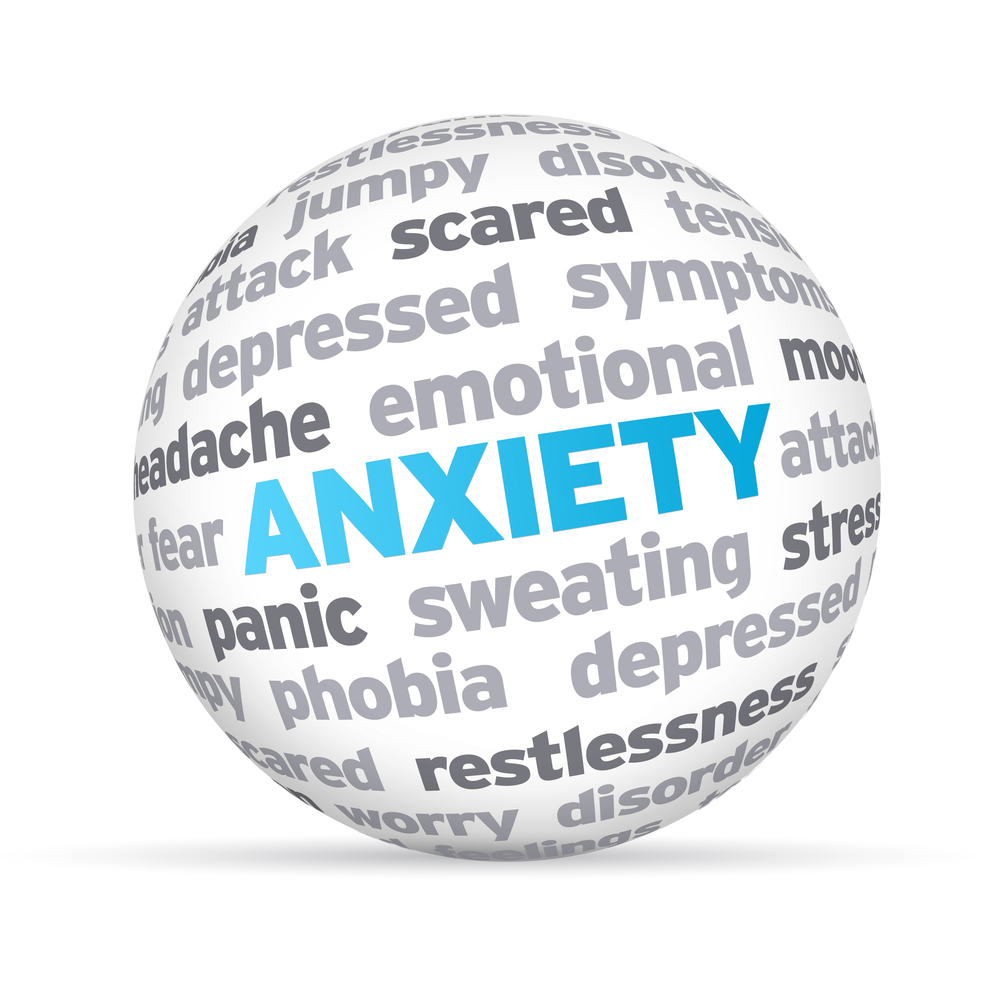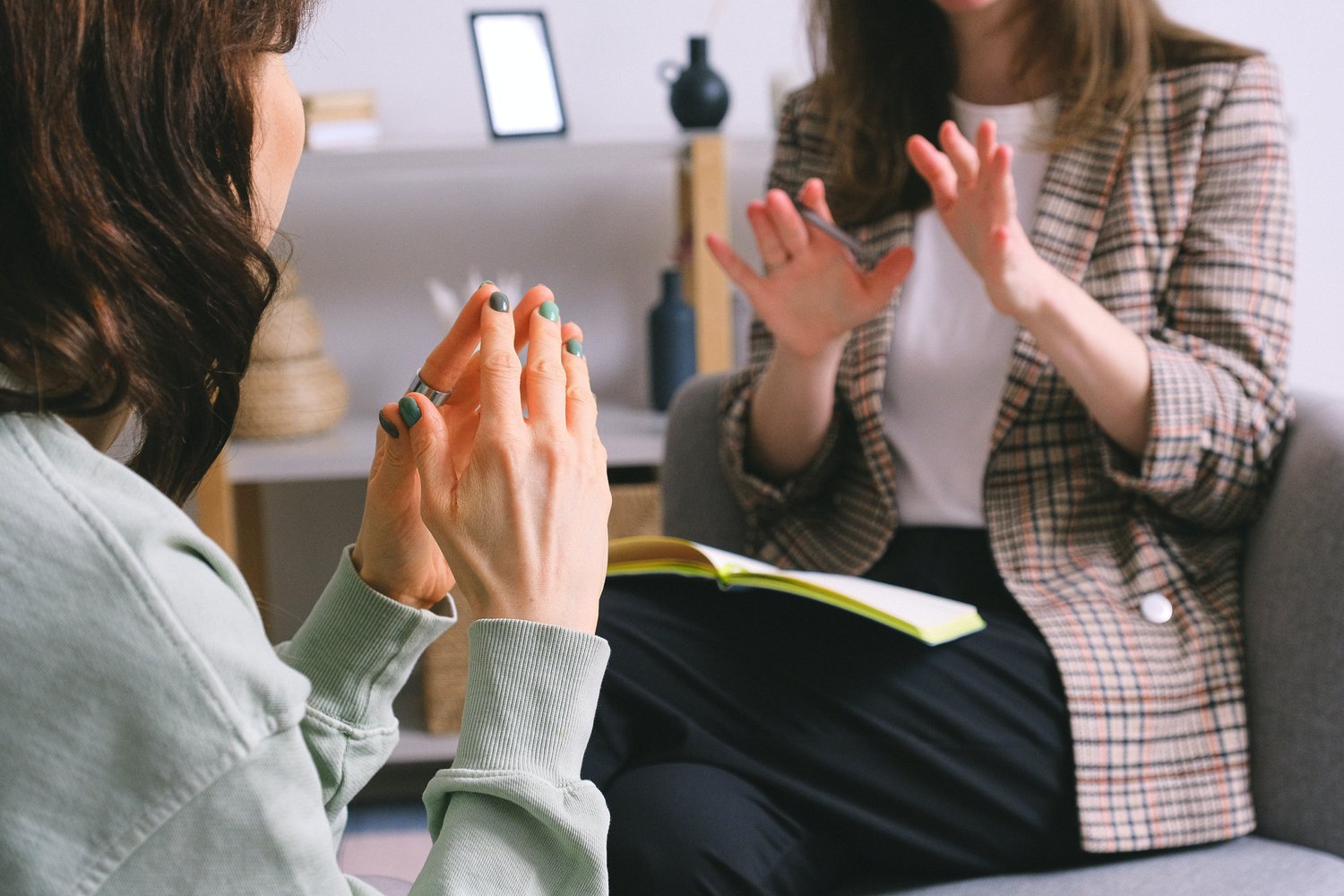Efficient Methods in Therapy for Anxiety Disorder: A Course to Recuperation
When encountering stress and anxiety conditions, you might feel overloaded and uncertain of where to turn. Reliable therapy methods can lead the way for recovery, giving you with the devices to navigate your challenges. From cognitive-behavioral strategies to mindfulness methods, each method offers one-of-a-kind advantages. Comprehending how these methods work with each other can make a substantial difference in your trip. What are the vital elements that will lead you in the direction of lasting change?
Recognizing Stress And Anxiety Disorders: A Thorough Introduction
It's crucial to recognize that they include an array of conditions identified by excessive anxiety or worry when you assume about stress and anxiety disorders. These conditions can show up in various means, including generalised stress and anxiety condition, panic disorder, and social stress and anxiety problem. You might experience signs like quick heartbeat, sweating, or problem focusing. It prevails to really feel overwhelmed, and these feelings can interrupt day-to-day life.Understanding the origin of stress and anxiety is important. They can stem from genetics, mind chemistry, or environmental variables. You might find that specific scenarios cause your anxiety, making it essential to determine these triggers.
Cognitive Behavior Modification (CBT): Reshaping Thought Patterns

Mindfulness and Leisure Techniques: Growing Present-Moment Understanding
Mindfulness and leisure methods aid you cultivate present-moment understanding, allowing you to handle anxiety a lot more efficiently. By concentrating on the here and currently, you can damage totally free from the cycle of fear and rumination that typically fuels anxiety. Begin by practicing deep breathing workouts. Inhale gradually via your nose, hold for a minute, then breathe out through your mouth. This easy strategy can soothe your mind and body.Engage in mindfulness meditation by establishing apart a few mins each day to observe your thoughts without judgment. Take note of your breath, experiences, and the audios around you. You could additionally find worth in dynamic muscle mass relaxation, where you stressful and relax each muscle team, advertising mental and physical ease.Incorporating these methods into your daily routine can produce a higher feeling of control, lower stress and anxiety signs, and boost your total wellness. Bear in mind, consistency is vital to experiencing the benefits.
Exposure Treatment: Facing Worries Slowly
Exposure therapy aids you encounter your fears progressively, allowing you to build confidence gradually. By using gradual direct exposure methods, you can slowly challenge what makes you nervous while establishing efficient coping devices. This process not just decreases your worry yet likewise encourages you to take care of anxiety more successfully.
Progressive Exposure Strategies
You can effectively decrease stress and anxiety and regain control over your life when you challenge your fears gradually. Progressive direct exposure methods entail facing your anxieties detailed, beginning with much less intimidating circumstances. You may start by picturing the been afraid situation, then advance to viewing videos or pictures connected to it. Eventually, you can practice challenging the anxiety in the real world, but just when you feel prepared. This method allows you to build self-confidence as you move via each phase. Bear in mind to pace on your own; hurrying can boost stress and anxiety. Celebrate tiny victories in the process, as each step onward empowers you. By continually applying these strategies, you'll find that your worries begin to shed their grip on your mind.
Structure Coping Mechanisms
Structure reliable coping devices is vital for handling anxiousness, particularly as you face your fears gradually with exposure therapy. Start by determining your specific anxieties and damaging them down right into workable actions. By doing this, you can progressively confront each concern without becoming overwhelmed. If you have a hard time with social circumstances, start by exercising tiny communications, like welcoming a neighbor.Alongside gradual exposure, incorporate relaxation strategies such as deep breathing or mindfulness to soothe your Licensed therapist for anxiety mind before dealing with triggers. Maintain a journal to track your development and commemorate little success. Surround yourself with supportive good friends or a specialist that can assist you. Bear in mind, it's a trip-- persistence and determination will strengthen your coping mechanisms, resulting in greater resilience against anxiousness.
Encouraging Therapy: Structure Depend On and Connection
To efficiently support a person with anxiousness, developing count on and rapport is important from the very initial session. You'll wish to create a risk-free space where they really feel comfortable expressing their ideas and feelings without judgment. Active listening is key; show authentic interest in what they share. Recognize their feelings and confirm their experiences. It is very important to be understanding, as this helps construct a connection and urges openness.Be constant in your approach and keep confidentiality to further reinforce that count on. Use open body movement and make eye get in touch with to convey your attentiveness. Bear in mind, your persistence goes a lengthy way; structure rapport requires time, and it's important to respect their rate. By promoting this supportive atmosphere, you'll empower them to involve even more fully in the healing process, making it less complicated for them to explore their anxiousness and work towards recovery.
Team Therapy: Shared Experiences and Cumulative Recovery
Group treatment can be a powerful device for those dealing with stress and anxiety problems, as it enables people to share their experiences and find solace in the understanding of others. In this encouraging environment, you can reveal your sensations without worry of judgment. Listening to others' tales can normalize your own experiences, making you really feel much less alone in your struggle.Participating in group therapy aids you create coping methods through shared understanding and understandings. As you pay attention to others, you may find brand-new means to tackle your anxiety check my reference that you hadn't taken into consideration before.Moreover, the cumulative healing that occurs in these sessions can promote a feeling of area, advising you that you're not facing your challenges alone.Building connections with others who comprehend your battle can enhance your self-confidence and motivation to confront your stress and anxiety. Group treatment produces a room where development and recovery come to be a common trip, encouraging you to take steps towards recovery.
Integrating Lifestyle Changes: Holistic Methods to Stress And Anxiety Administration
While therapy supplies essential support, integrating lifestyle changes can significantly enhance your capability to handle stress and anxiety. Begin by integrating routine physical activity into your routine. Exercise releases endorphins, which can elevate your state of mind and reduce stress. Next off, take notice of your diet regimen. Consuming a well balanced diet regimen abundant in fruits, veggies, and whole grains can positively impact your mental wellness. Don't ignore sleep-- go for 7-9 hours per night, as top quality remainder is important for emotional regulation.Mindfulness techniques, such as reflection or yoga exercise, can also help you remain grounded and existing. Take into consideration alloting time daily to exercise these techniques. Restriction caffeine and alcohol usage, as they can worsen anxiousness signs. By making these holistic adjustments, you produce a more powerful foundation for managing stress and anxiety, complementing the advantages acquired from treatment. Remember, every tiny step rely on your path to recuperation.
Frequently Asked Inquiries
What Are the Common Physical Signs And Symptoms of Anxiety Problems?
Common physical signs of anxiousness conditions consist of rapid heart price, lack of breath, muscle stress, sweating, and headaches. You may also experience tiredness, wooziness, or intestinal concerns, which can even more complicate your day-to-day life.
How Much Time Does Counseling for Anxiety Normally Take?

Therapy for stress and anxiety normally takes a couple of weeks to several months, depending on your private requirements and development. counselling for anxiety. You'll discover that routine sessions aid you create dealing approaches and obtain understandings right into your anxiousness
Can Anxiousness Problems Be Totally Treated?

What Should I Perform in a Panic Attack?
Throughout an anxiety attack, focus on your breathing. Breathe in deeply through your nose, hold for a minute, then breathe out gradually - counselling for anxiety. Ground yourself by calling objects around you, and advise yourself it will certainly pass
Are There Medications for Anxiousness Conditions?
Yes, there are several drugs for stress and anxiety problems, consisting of benzodiazepines and antidepressants. You should get in touch with a health care specialist to discover the appropriate treatment strategy tailored to your certain needs and scenarios for the very best outcomes. When you think regarding anxiety conditions, it's essential to acknowledge that they incorporate a range of conditions identified by excessive anxiety or concern. These disorders can manifest in different means, including generalized anxiousness disorder, panic condition, and social anxiousness problem. Building reliable coping mechanisms is necessary for managing anxiety, particularly as you encounter your anxieties gradually with direct exposure treatment. Team treatment can be an effective tool for those dealing with anxiety problems, as it allows individuals to share their experiences and find solace in the understanding of others. As you listen to others, you might find brand-new read the full info here means to tackle your anxiety that you hadn't considered before.Moreover, the cumulative recovery that happens in these sessions can foster a feeling of area, advising you that you're not facing your difficulties alone.Building links with others that recognize your struggle can improve your confidence and inspiration to face your anxiousness.